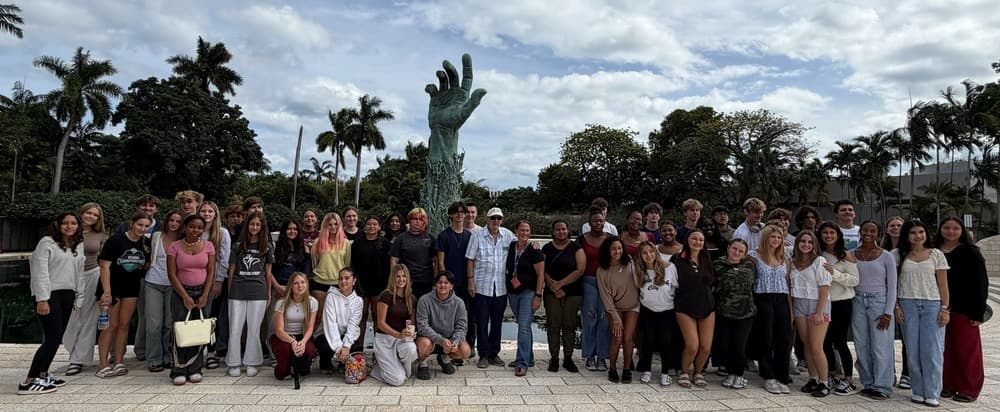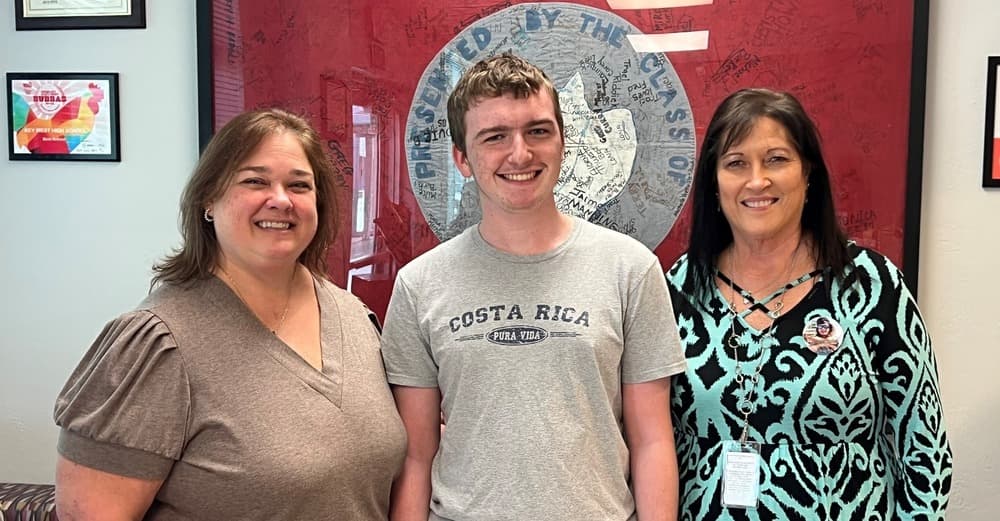Local Students Learn From Survivor Testimony at Miami Memorial
On November 7, tenth grade students from Ms. Shoemaker's World Literature class visited the Miami Holocaust Memorial where staff covered the bus cost after being impressed by the group. The visit brought survivor testimony, private tours, and reflective assignments that matter for Monroe County students because they deepen historical understanding, support emotional learning, and highlight the need for equitable access to educational experiences.

A group of tenth grade students from Ms. Shoemaker's World Literature class traveled to the Miami Holocaust Memorial on November 7 for a day of testimony, tours, and reflection. Memorial staff, impressed by the students' engagement and behavior, covered the bus cost for the visit, making the experience accessible to the entire class.
At the Memorial the students heard testimony from Laszlo Selly, a Holocaust survivor from Budapest, Hungary. Mr. Selly described being seven years old in a Jewish ghetto, being hidden along with his twin brother, and the family ordeal that culminated when Soviet forces liberated their street. He began sharing his story publicly only about seven years ago. Students also received a private tour led by Mr. Selly and a third generation survivor named Jen, giving the class direct access to personal histories that remain central to Holocaust education.
The trip connected directly to the class curriculum. Students had studied Elie Wiesel's dedication speech at the Miami Holocaust Memorial as part of their unit, and they posed for a group picture at the exact spot where that speech was delivered. As part of an assignment, each student photographed moments from the visit and will select one image to write about, in addition to composing reflections on how the Holocaust unit affected them.
Chaperones on the trip included parents, Take Stock mentors, district employees, and the tenth grade school counselor. The presence of the school counselor underscored the emotional intensity such visits can produce and aligned with the class emphasis on reflective learning. The Memorial staff praised the students for their conduct and engagement, a response that school leaders said reinforced the value of bringing young people to places of remembrance.
For Monroe County the visit has several community implications. First, survivor testimony is increasingly time sensitive as the generation that lived through the Holocaust ages. Direct encounters with those who survived offer depth and authenticity that classroom texts cannot fully replicate. Second, the Memorial covering bus costs highlights disparities in access to educational opportunities and the role that community partnerships play in bridging those gaps. Ensuring equitable access to field trips and cultural institutions requires sustained funding and policy support at the school district and county levels.
Public health and social equity considerations are also relevant. Exposure to traumatic histories can be emotionally challenging for adolescents, and the inclusion of a school counselor on the trip models trauma informed practice. Schools and policymakers should consider routine mental health supports when planning similar visits, and prioritize programs that make such experiences available to students from all backgrounds.
The class will continue its reflective work in coming weeks as students finalize their photographic essays and written reflections. Teachers and community partners hope the visit will deepen historical understanding, foster empathy, and encourage civic responsibility among Monroe County youth.


